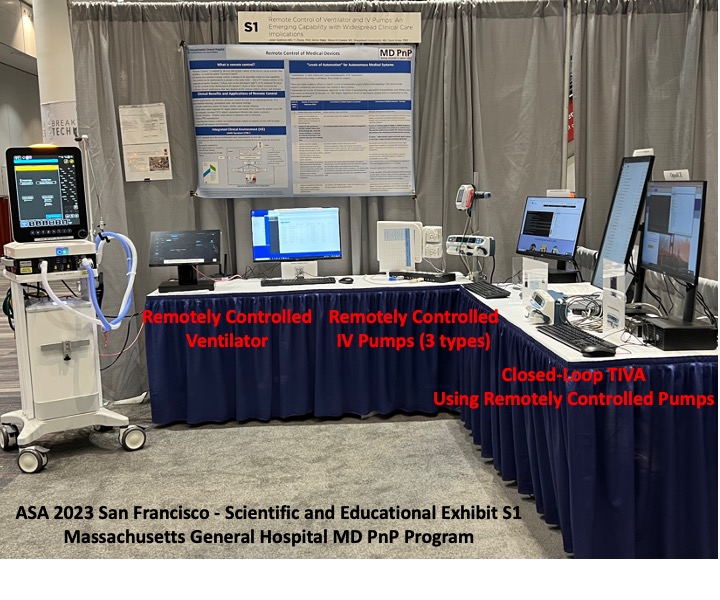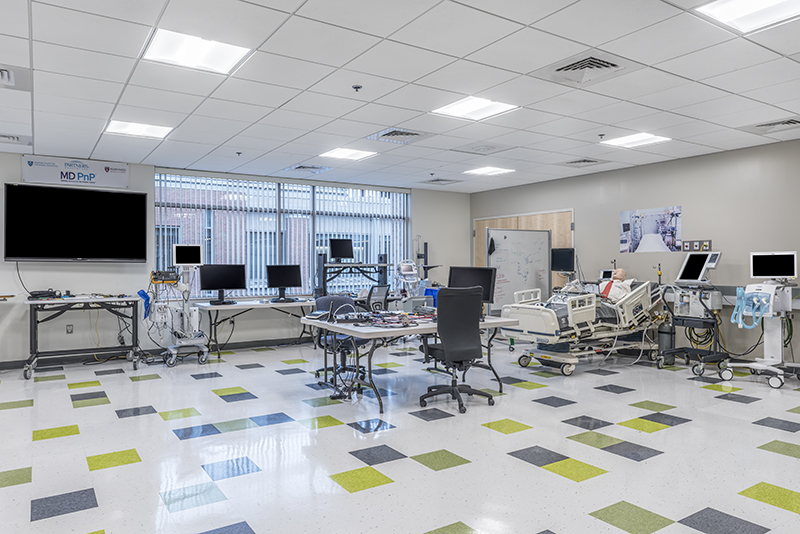
The MD PnP Program at Massachusetts General Hospital is thrilled to announce the public release of version 2.0 of our open-source interoperability research platform, OpenICE. OpenICE is a reference implementation of the Integrated Clinical Environment (ICE) standard – ANSI/AAMI 2700-1.
Version 2.0 is a major release of OpenICE. Compared to v1.5, version 2.0 introduces a wide array of enhancements that streamline the development and compilation process on OpenICE, align the platform with recent technological advancements, and substantially boost its capabilities in supporting interoperability innovations.
OpenICE 2.0 introduces several updates to make development easier and more intuitive
- Updated Gradle Build Tool to Version 7.6: Supports advanced build capabilities and ensures compatibility with modern development practices.
- Compilation and Execution Using Java 17: Aligns with the latest Java standards, providing enhanced performance and security.
- Bug Fixes and Enhancements: Various third-party libraries used by OpenICE have been updated to their latest versions to mitigate known vulnerabilities. In addition, the issue preventing the creation of serial connected devices after network-connected devices has been resolved, facilitating smoother development experiences.
Aligning with Technological Advances
This release incorporates cutting-edge technology to keep pace with current trends:
- Support for aarch64 Architecture: Ensures OpenICE runs seamlessly on modern devices, including Raspberry Pi, enhancing its utility in diverse environments.
- Integration of RTI Connext 7.3: Updates the underlying real-time networking infrastructure to support sophisticated data handling and connectivity required by modern applications. Since RTI DDS Connext 7.3 is the latest long-term-support (LTS) version, transitioning OpenICE to this version is expected to improve the long-term stability of the platform.
- Docker Images for Simulated Devices and Web Integration Services: Simplifies deployment and scaling of OpenICE in various operational contexts.**
Enhancing Support for Interoperability Innovation
OpenICE 2.0 significantly advances its interoperability framework with these new features:
- DDS Objectives with Arbitrary Key-Value Pairs: This feature enhances data publishing capabilities, enabling more dynamic data interactions across different devices and apps.
- Updated FHIR Integration: FHIR interfaces in OpenICE have been revised to align with the latest FHIR specifications, ensuring more effective and exchanges of medical data.
- Enhanced Data Export Tools: New features such as the ability to export array samples and use custom separators in the CSV export tool improve data management, exportation, and usability.
- Interface to external Python applications: Leveraging the latest Python APIs from RTI DDS Connext, OpenICE now integrate more smoothly with external Python applications, facilitating innovations in interoperability, medical informatics, and other medical application domains.
- Diverse Enhancements for Prototyping and Testing: The new version includes a variety of new features to aid prototyping and testing. These include a driver for the latest ColeParmer TB800 high-precision scale, an updated app for simulating controllable IV pumps, an enhanced IV pump remote control app compatible with pumps, and a clinical scenario feature that initiates a collection of device drivers upon OpenICE startup to quickly establish desired scenarios.
These enhancements and new features not only address key technological advancements but also significantly improve the flexibility, security, and capability of OpenICE, enabling it to meet the advanced interoperability platform needs to support research and innovation in Smart and Autonomous Medical Systems (SaAMS). With these updates, we anticipate that OpenICE 2.0 will establish a new standard for open health platforms (OHP), catering to the rapidly evolving needs of medical device interoperability and healthcare innovators.
